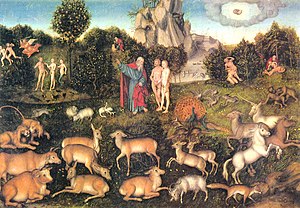
(picture courtesy of guy fortune.com)
This moment occurred in Superman (1978). In my opinion this film was good up until this specific moment where superman saved Lois Lane from the jaws of death in such a dramatic fashion. The superman films of the late 70s and early 80s had very dramatic moments and it was an annoying trend. In Superman 2 (1981), for instance, superman gives up his powers for Lois lane, a mere mortal, while the world is at war with General Zod. He is humiliated by an average brawler in a diner when he is given a beaten and exclaims pathetically, after falling through glass, 'that's my blood.' He has to hobble back through biting cold winds to the fortress of solitude in a hope to recover his powers after he finally discovers that Zod is on the loose. I scoffed at this dramatic spectacle but I tolerated it because it was not as excessive as the dramatic movie moment I am about to discuss. Although Man of Steel continued this tradition of dramatic spectacle it was not as excessive as the old superman films and for that i was thankful.
Now let's turn to this absurd moment. Lex Luthor (Gene Hackman) wants to destroy most of California so that it will increase the value of the barren real estate in his possession. He decides to destroy most of the area by unleashing two nuclear bombs and when one hits it creates a massive earthquake which engulfs Lois Lane and her car thereby killing her. Superman, on escaping Luthor's prison, kept his promise to Luthor's Hench-woman to dismantle, first, one of the missiles that headed to her hometown. He is, therefore, unable to save Lois especially as he has to spend time stabilizing the crisis that erupts when the missile creates serious tremors in California. When he finally discovers Lois he is distraught. The great absurd moment occurs when Superman screams out in frustration and flies up, up and away outside of earth's atmosphere. He recalls the voice of his biological father, Jorel (Marlon Brando), saying that he must not tamper with human history. Superman disregards this advice and pays heed to the advice of his earthly father Jonathan Kent, who says he must be on earth for a reason. Is the reason to save Lois Lane? If so then that is a quite pathetic reason. Superman then spins around the earth at such violent speed (mach- 1 billion) that the earth rotates in reverse and time it self is altered as previous events come back into existence. We watch the absurd moment unfold as all the destruction created by the tremors is corrected and, most importantly, he saves Lois.
This movie moment is absurd because it places superman on a truly godlike pedestal. this man has so much power that he can make the earth spin in reverse. No where in the comics is he that powerful. If he were there would be no villain to match him with. There is also no realistic guarantee that if you spin around the earth at such violent speed that time itself will be reversed. If superman was so fast why did he struggle to get to Lois Lane in time thereby negating the possibility of her death at that particular moment.
This moment condemned Superman to ignominy long before Superman 3 &4. It is here that superman became the judge of the world hence his inevitable quest for peace and his embarrassing address to the United nations a couple years later. it is here that superman took on this great burden of isolation which would never make him relatable. In Superman Returns (2006) he lifts an entire island and tosses it like a sponge ball yet allows Luthor to kick him around thanks to a little kryptonite. This excessive display of power in Superman (1978) ensured that that there was no possibility that superman would ever be seriously challenged hence why in Superman 3 he fights himself for good measure and only a nuclear man in Superman 4 can put up a decent fight which is really a no contest, apart from the nails.
Man of Steel has thankfully addressed this issue to some degree.

